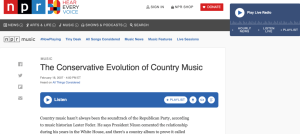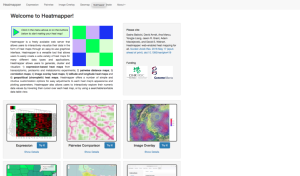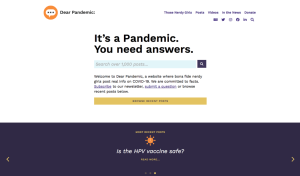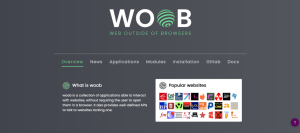Theme: History of American Country Music
Back to Top
|
 |
|
Country Music Hall of Fame Online Exhibits
|
Arts |
|
The Country Music Hall of Fame (last featured in the 06-01-2001 Scout Report) is open for onsite visitors, but for those who are unable to get to Nashville in person, two online exhibits funded by the National Endowment for the Humanities provide a glimpse of its collections. The first, Dylan, Cash, and the Nashville Cats: A New Music City, explores the impact of Bob Dylan's 1960s Nashville recordings, Johnny Cash's TV show, and the ace musicians known as the "Nashville Cats." The exhibit consists of six sections: Dylan in Nashville, Johnny Cash, The Nashville Cats, Artists That Followed, A New Music City, and Today's Influences, and concludes with a link to a list of the performances, books, and recordings that trace the impact of these artists into the 21st century. The second online exhibit, Suiting the Sound: The Rodeo Tailors Who Made Country Stars Shine Brighter, introduces the clothiers who dressed country music and rodeo stars in rhinestones, including Bernard "Rodeo Ben" Lichtenstein, Nathan Turk, Nudie Cohn, and others. Visitors can view the rhinestone-studded garb worn by musicians from Gene Autry to Lil Nas X and watch videos of performers wearing the sparkly clothes, all while learning the backstory of the tailors behind these iconic fashions. [DS] |
|





|
|
 |
|
Cocaine & Rhinestones Podcast
|
Social studies |
|
In each episode of this hit podcast, Nashville-based creator Tyler Mahan Coe takes a deep dive into the sparkle, sweat, and tears of 20th century country music history and lore. Lifelong country fans will appreciate Coe's thorough approach to the subject, while those new to the genre and fans of narrative-style podcasts will enjoy discovering a new facet of American cultural history. A sampling of the topics covered includes Loretta Lynn's banned 1975 song about birth control (Episode CR002), the mysterious disappearance of one-hit-wonder and "Ode to Billie Joe" singer Bobbie Gentry (Episode CR004), the tumultuous personal life of Wynonna Judd (Episode CR012), and a three-part series on the bizarre hit song "Harper Valley PTA" (Episodes CR007-009). Besides the compelling subject matter, the podcast is distinguished by Coe's meticulously documented research. Each episode is accompanied by a blog post where listeners will find a list of Primary Sources, Liner Notes linking to all songs and videos sampled in the episode, and a Commentary and Remaining Sources section with Coe's behind-the-scenes research notes and further reading suggestions. Each blog post also includes a transcript of the episode with relevant visual aids. To find the blog, readers can click "Episodes" at the top of the page, then select a season and episode. In addition, readers can click "Library" for a list of referenced books along with Coe's commentary on each. The podcast streams on most listening platforms. [HCL] |
|





|
|
 |
|
 |
|
Roots & Branches of Country Music
|
Arts |
|
A companion resource to Ken Burns's documentary Country Music, Roots & Branches of Country Music invites readers to explore the diverse origins, influences, and offshoots of the genre. Gospel tent revivals, British ballads, travelling minstrel shows, and banjo traditions dating back to ancient Egypt are all among the "roots" of American country music, and it has since spread its "branches" from honky tonk to rockabilly to "countrypolitan." On the page linked above, readers can scroll to the Explore sections to find clickable tiles. Images and a summary of each root or branch can then be found by clicking "Read More." To see behind-the-scenes clips from the film, readers can navigate to the top of the page and click "Extras," then "Video Extras." The "Extras" menu also includes other resources of interest, such as a "Country Music Timeline" and a selection of lesson plans for grades 6-12 ("Classroom"). The project is funded by the Corporation for Public Broadcasting and PBS, along with other donors that are listed in the page footer. [HCL] |
|





|
|
 |
|
NPR: The Conservative Evolution of Country Music
|
Social studies |
|
According to music historian Lester Feder, American country music has not always been associated with conservative values or politics. In this 2007 episode of NPR's All Things Considered, host Debbie Elliot, a national correspondent who often covers the American South, speaks with Feder about when and how country music got political and became the unofficial soundtrack for conservative ideals and cultural pride. The conversation centers on a little-known compilation album called Thank You, Mr. President, which was created exclusively for then-President Richard Nixon by the Country Music Association in 1972. Listeners will learn how Alabama segregationist George Wallace's gubernatorial campaign, Merle Haggard's parody song "Okie from Muskogee," and the Dixie Chicks critique of the war in Iraq shaped the political significance of country music. The page linked above includes a written transcript of the episode, audio streaming and download options, and links to related stories from NPR. [HCL] |
|





|
|



















